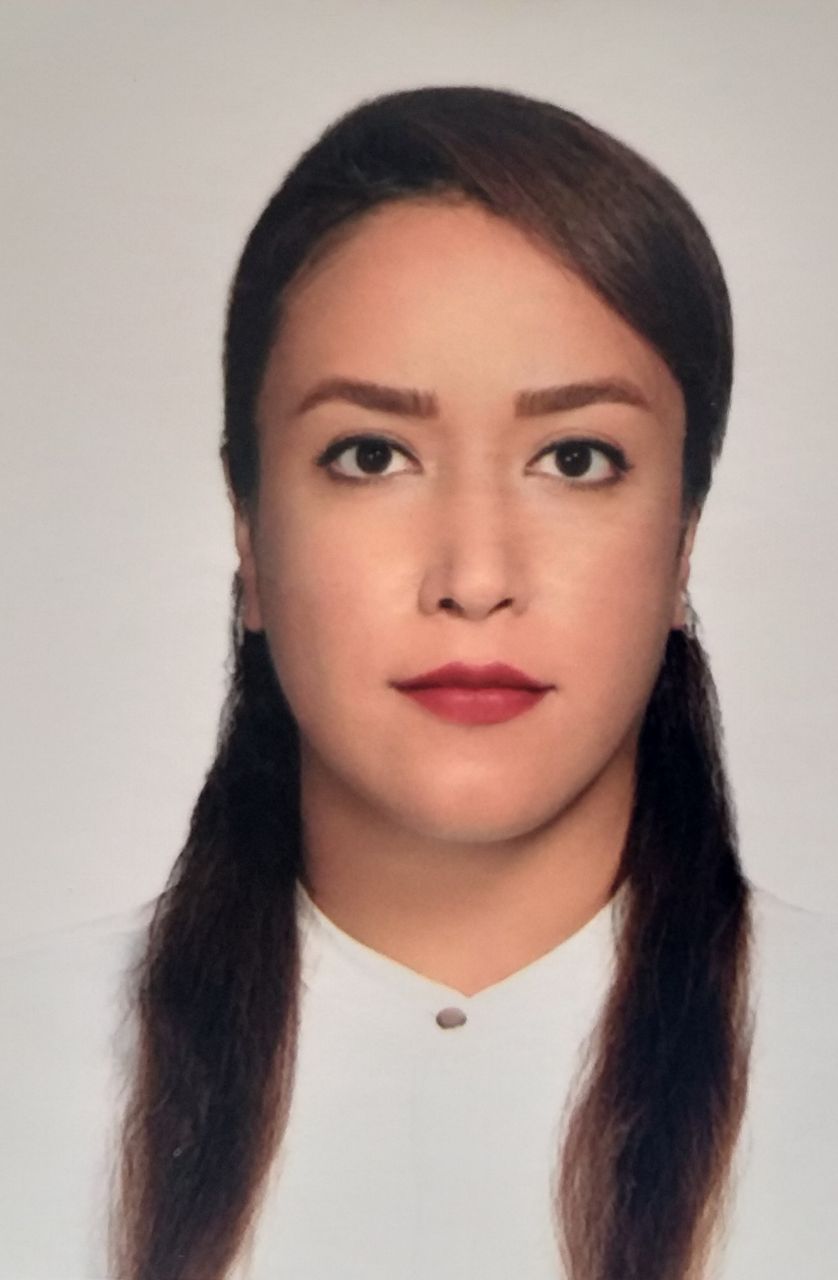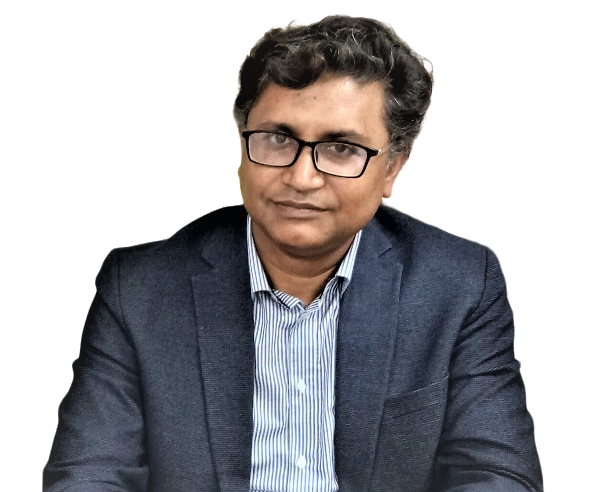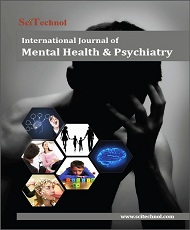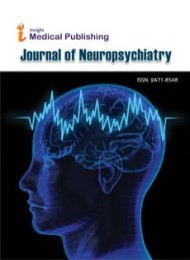Theme: Global Perspectives on Mental Health: Challenges and Solutions
MENTAL HEALTH SUMMIT 2024
We are delighted to extend a warm and hearty inviting to all the eminent speakers\delegates to attend our upcoming event on the "9th International Conference on Mental Health and Psychiatry Series-II" which will be held on during November 21-22, 2024 | Webinar. Conference theme, "Global Perspectives on Mental Health: Challenges and Solutions" reflects our collective commitment to advancing the field of mental health and placing it at the forefront of global healthcare agendas.
This conference promises to be a transformative event, offering a platform for leading experts, researchers, clinicians from across the globe to exchange ideas, share cutting-edge research, and explore innovative solutions. Our program is designed to be inclusive, spanning a wide range of topics encompassing mental health and psychiatry, from diagnosis and treatment to prevention and public policy.
It is our great pleasure to welcome you to the “9th International Conference on Mental Health and Psychiatry Series-II” which is to be held on November 21-22, 2024 | Webinar. This event is organized by Conference Series, conducts 3000+ conferences every year in all the major scientific disciplines across Europe, USA & Asia which is being received by more than 25 million researchers, scholars, students all over the world.
The theme of our conference is based on "Global Perspectives on Mental Health: Challenges and Solutions". The conference invites all the Psychiatrists, Neurosurgeons, Mental Health Nurses, Psychologists, Neuropsychiatric, Neurologists, Emergency medicine specialists, International speakers, Scientists, Researchers, University Professors, Students, College Faculties and Healthcare professionals to share their experience in this Psychiatry field.
Mental Health Summit 2024 will be a great platform for exchange of new ideas and research Work. This gathering will provide networking sessions for keynote speakers, speakers, Professors, Scientists continuing, Business Assistants, Students, and individuals from all psychiatrists. It also helps in education opportunities and quality information shared by Keynote Speakers, Symposia, hands-on workshops, and exhibition.
TARGETED AUDIENCE
- Psychiatrists
- Mental health Professors
- Psychologists
- Neurosurgeons
- Neuroscientist
- Physicians
- Researchers
- Health care professionals
- Mental health Nurses
- Lecturers and Students from Academic
- Industrial Experts
- Students from Academia in the research of Psychology
- Diagnostic laboratory professionals
- Business Entrepreneurs
Session 1: Mental Health
Mental health is a vital aspect of overall well-being, encompassing emotional, psychological, and social stability. It affects how we think, feel, and interact with the world. Good mental health promotes resilience, productivity, and fulfilling relationships, while poor mental health can lead to a range of challenges, from depression and anxiety to more severe conditions. Destigmatizing mental health issues, seeking help when needed, and prioritizing self-care are crucial steps in fostering a healthier and more compassionate society where individuals can thrive emotionally and mentally.
Types of mental health
- Mood disorders (similar as depression or bipolar complaint)
- Anxiety
- Psychotic diseases (similar as schizophrenia)
- Personality diseases.
Session 2: Psychiatry and Psychology
Psychiatry and psychology are intertwined fields that focus on understanding and addressing mental health. Psychiatry involves medical treatment, often prescribing medication, for mental disorders. Psychology, on the other hand, delves into behavior and thought processes through therapy and counselling. Together, they contribute to the holistic care of individuals facing mental health challenges.
Session 3: Child and Adolescent Psychiatry
Child and Adolescent Psychiatry is a specialized branch of medicine dedicated to the mental health of young people. It focuses on diagnosing, treating, and preventing psychiatric disorders in individuals from infancy through adolescence. Child and adolescent psychiatrists undergo extensive training to understand the unique developmental and emotional needs of young minds. They play a crucial role in addressing issues such as ADHD, anxiety, depression, and behavioral disorders, aiming to provide early intervention and support for healthy emotional growth and well-being.
Session 4: Dementia
Dementia is a progressive neurological disorder that impairs cognitive functions, memory, and daily life activities. It affects millions of individuals worldwide, primarily the elderly. Common forms include Alzheimer's disease, vascular dementia, and Lewy body dementia. Symptoms range from memory loss and confusion to personality changes and impaired motor skills. Dementia not only challenges patients but also places a significant burden on caregivers and healthcare systems. Early diagnosis, support, and research are crucial in addressing this growing global health concern.
Types of Dementia
- Alzheimer's disease
- Vascular dementia
- Lewy body dementia
Session 5: Schizophrenia
Schizophrenia is a complex mental disorder characterized by hallucinations, delusions, disorganized thinking, and emotional disturbances. It typically emerges in early adulthood and affects about 1% of the population worldwide. While its exact cause remains uncertain, it often requires a combination of medication and therapy for management, with early intervention being crucial for better outcomes.
Session 6: Stress, Anxiety and Depression
Stress is the body's response to pressure, both physical and emotional. It can be beneficial in small doses but harmful when chronic, leading to various health issues. . The way you respond to stress, still, make a big difference to your overall health. It’s normal to feel anxious about moving to a new place, taking a test or starting a new job. This type of anxiety is distressing, but it may motivate you to work harder and do a better job. Ordinary anxiety is a feeling that comes and goes but doesn’t intrude with your everyday life. In the case of an anxiety complaint, the feeling of fear may be with you all the time. It’s violent and occasionally enervating. Depression is a common and serious medical illness that negatively affects how you act, how you feel and the way you suppose. Fortunately, it is also treatable. Depression causes passions of sadness and/or a loss of interest in conditioning you formerly enjoyed. It can lead to a variety of emotional and physical problems and can drop your ability to function at work and at home.
Session 7: Neurology and Neurological Disorder
Neurology is the medical specialty focused on the study and treatment of the nervous system, including the brain, spinal cord, and peripheral nerves. Neurological disorders encompass a wide range of conditions, such as Alzheimer's, epilepsy, and multiple sclerosis, impacting the nervous system's structure or function, often requiring specialized care and treatment.
Some of the most common neurological diseases include
- Alzheimer's
- Parkinson's
- Epilepsy
- Migraines
- Multiple sclerosis
- Stroke
Session 8: Women Mental Health
Women's mental health is a crucial aspect of overall well-being, encompassing the psychological and emotional state of females. It is influenced by biological, societal, and cultural factors, including hormonal fluctuations, life transitions like pregnancy and menopause, and gender-specific stressors. Addressing these concerns involves accessible and gender-sensitive mental health care, destigmatization, and promoting awareness to ensure women receive the support and resources needed for optimal mental health.
Common mental health issues in women
- Depression
- Anxiety
- Eating disorders
- Post-traumatic stress disorder (PTSD)
Session 9: Child Abuse
Child abuse or child maltreatment is physical, sexual, and/ or cerebral maltreatment or neglect of a child or children, especially by a parent or a caregiver. Child abuse may include any act or failure to act by a parent or a caregiver that results in factual or implicit detriment to a child and can do in a child's home, or in the associations, seminaries, or communities the child interacts with. The terms child abuse and child maltreatment are frequently used interchangeably, although some experimenters make a distinction between them, treating child maltreatment as a marquee term to cover neglect, exploitation, and trafficking.
Types of child abuse:
- Physical abuse
- Emotional or psychological abuse
- Physical neglect
- Emotional or psychological neglect
- Sexual abuse
Session 10: Suicide and Self Harm
Suicide and self-harm are major health and societal issues worldwide, but the topmost burden of both behaviours occurs in low- income and middle- income countries. Although rates of self-murder are advanced in manly than in womanish individualities, tone- detriment is more common in womanish individualities. Rather than having a single cause, self-murder and tone- detriment are the result of a complex interplay of several factors that do throughout the life course, and vary by gender, age, race, and terrain. Several clinical and public health interventions show pledge, although our understanding of their effectiveness has largely began from high- income countries. Trying to prognosticate self-murder is doubtful to be helpful. Intervention and prevention must include both a clinical and community concentrate, and every health professional has a pivotal part to play
Session 11: Bipolar Disorder
Bipolar disorder, formerly known as manic depression, is a mental health condition characterized by extreme mood swings. Individuals with bipolar disorder experience manic highs and depressive lows, affecting their energy, behavior, and cognition. Treatment often involves mood stabilizers and therapy to manage symptoms and enhance quality of life.
Three types of Bipolar Disorder
- Bipolar I
- Bipolar II
- Cyclothymic disorder
Session 12: Behavioral Science
A Behavioral Science or branch of knowledge, as brain wisdom or mortal wisdom, that gets its ideas from perception of the conduct of living organisms. It's a logical train, for illustration, mortal wisdom, mortal lores, or brain disquisition, in which the exertion and responses of people and beasties are contemplated through experimental and pilot ways. Social wisdom is the effective examination and examination of mortal and creature conduct through controlled and natural perception, and trained logical trial. Conduct lores incorporates any of different logical controls, for illustration, humanism, mortal lores, or brain wisdom, in which the exertion and responses of people and beasties are contemplated through experimental and exploratory strategies
Session 13: Sleep Disorders
Sleep disorders encompass a range of conditions that disrupt a person's normal sleep patterns. These disorders can affect the ability to fall asleep, stay asleep, or achieve restorative sleep, leading to daytime fatigue and impaired functioning. Common sleep disorders include insomnia, sleep apnea, narcolepsy, and restless legs syndrome. They can result from various factors, including lifestyle, medical conditions, and mental health issues. Accurate diagnosis and proper treatment are essential to alleviate symptoms and improve overall well-being.
Session 14: Psychotherapy
Psychotherapy, often referred to as talk therapy, is a therapeutic approach that involves discussions between a trained therapist and an individual or group. It aims to address emotional and psychological issues, helping people understand their thoughts, feelings, and behaviors. Psychotherapy can be used to treat a wide range of mental health conditions, including anxiety, depression, and PTSD. It provides a safe and supportive environment for self-exploration, coping skill development, and fostering personal growth, ultimately enhancing mental and emotional well-being.
Session 15: Addiction
Addiction is a complex and chronic condition characterized by compulsive drug or substance use, despite harmful consequences. It can involve substances like drugs or alcohol, or even behaviors such as gambling or gaming. Addiction alters brain function, leading to intense cravings and loss of control. It not only affects physical health but also strains relationships and hampers daily life. Treatment often combines therapy, medication, and support groups, addressing both the physical and psychological aspects to promote recovery and long-term sobriety.
Session 16: Mental Health Nursing
Mental health nursing refers to the branch of nursing focused on providing care and support to individuals dealing with mental health disorders and emotional challenges. Mental health nurses work in various healthcare settings, offering therapeutic interventions, medication management, counselling, and education to help patients improve their mental well-being and quality of life. Their role is crucial in addressing and treating mental health issues while promoting overall health and recovery.
Session 17: Psychosomatic Disorders
Psychosomatic disorders, also known as psychophysiological disorders, are conditions in which psychological factors significantly contribute to physical symptoms or illnesses. These disorders result from the intricate interplay between emotional, psychological, and physical factors. Stress, anxiety, depression, or other emotional stressors can manifest as physical symptoms, such as headaches, digestive issues, or pain. Treating psychosomatic disorders often involves addressing the underlying emotional or psychological issues through therapies like psychotherapy or counselling, along with medical interventions as needed.
Session 18: Sport and exercise psychology
Sport and exercise psychology delves into the mental aspects of athletic performance, focusing on enhancing motivation, concentration, and coping skills. It explores how psychological factors influence physical activity, aiming to optimize performance, manage stress, and improve overall well-being. Techniques like visualization, goal setting, and stress management help athletes and individuals harness their mental strength, fostering resilience, and achieving peak performance in sports, fitness, and various areas of life.
Session 19: Impulse-control disorder
Impulse-control disorder refers to a condition characterized by an inability to resist impulses or urges that may lead to harmful consequences. Individuals with this disorder often struggle with controlling their behaviors, such as gambling, substance abuse, or binge eating. The disorder can significantly impair daily functioning and relationships, causing distress and shame. Treatment typically involves psychotherapy, cognitive-behavioral techniques, and sometimes medications to manage symptoms and develop healthier coping strategies. Early diagnosis and intervention are crucial in improving outcomes and minimizing the impact of impulse-control disorder on individuals' live.
Session 20: Post-Traumatic stress disorder
Post-Traumatic Stress Disorder (PTSD) is a mental health condition triggered by experiencing or witnessing a traumatic event. Symptoms include flashbacks, nightmares, severe anxiety, and uncontrollable thoughts about the event. PTSD can disrupt daily life, relationships, and work. Treatment often involves psychotherapy (such as cognitive-behavioral therapy) and medications to manage symptoms. Support from loved ones and a safe environment are crucial for recovery, as PTSD affects individuals differently and requires personalized care
Session 21: Mindfulness, Yoga and Meditation
Mindfulness, Yoga, and Meditation are practices that promote mental and physical well-being through focused attention and relaxation techniques. Mindfulness cultivates present-moment awareness to reduce stress and enhance clarity. Yoga combines physical postures, breathing exercises, and meditation for holistic health benefits. Meditation involves various techniques aimed at calming the mind and improving emotional resilience. Together, these practices offer effective tools for managing stress, improving concentration, and fostering a balanced lifestyle.
- Awareness
- Asanas
- Breath
- Presence
- Relaxation
Session 22: LGBTQ+ and Mental Health
Lesbian, gay, bisexual, and transgender (LGBTQ+) individuals often face mental health disparities due to societal stigma, discrimination, and challenges related to identity acceptance. These factors contribute to higher rates of anxiety, depression, and substance use disorders within the community. Access to affirming healthcare and support networks plays a crucial role in promoting mental well-being. Addressing these issues through advocacy, education, and inclusive policies is essential to improving mental health outcomes for LGBTQ+ individuals.
Session 23: Parkinson's disease
Parkinson's disease is a progressive neurological disorder that affects movement control, typically starting with subtle tremors in one hand. It occurs due to the degeneration of dopamine-producing neurons in the brain, primarily in an area called the substantia nigra. Common symptoms include muscle rigidity, slow movements (bradykinesia), balance issues, and speech changes. Though the exact cause is unclear, genetic and environmental factors may contribute to its development. Parkinson's is most common in older adults and worsens over time, though medications and therapies can help manage symptoms. Research continues into finding more effective treatments and, ultimately, a cure.
Session 24: Case studies on Mental health and psychiatry
Case studies on mental health and psychiatry offer detailed insights into the diagnosis, treatment, and management of psychiatric conditions. They provide real-world examples that highlight the complexities of disorders like depression, anxiety, and schizophrenia. By examining individual patient experiences, these studies help clinicians understand the effectiveness of various therapeutic approaches and the challenges faced in treatment. This valuable knowledge contributes to improving clinical practices, developing personalized treatments, and fostering a deeper understanding of mental health issues.
Global Behavioral Health Market
The Behavioral Market size is anticipated to be worth around USD227.5 Bn by 2032 from USD140.1 Bn in 2022, growing at a CAGR of5.1 during the cast period from 2022 to 2032. Generally, behavioral health refers to life heads and stressors, mental health and substance use diseases, and stress- related physical symptoms. Mental health care is described as the diagnosis, prevention, and treatment of these conditions.
It includes the services handed by psychiatrists, neurologists, counselors, social workers and physicians. Some honored causes of behavioral health diseases include early adverse life gests , similar as a history of abuse, trauma, and old gests associated with habitual medical conditions, similar as cancer, diabetes, use of alcohol or medicines, natural factors or chemical imbalance in the brain, having feelings of loneliness.
Disorder Analysis
The anxiety & depression diseases member dominated the global behavioral health request and is anticipated to grow more during the cast period. Grounded on type, the request for behavioral health is segmented into bipolar diseases, depression & anxiety substance post-traumatic stress complaint ( PTSD), abuse diseases, eating diseases, alcohol use diseases, and other diseases. Out of these, the anxiety & depression diseases member is the most current in various countries across the Global. This is largely due to relationship and socioeconomic pressure, work pressure, and academic pressure. also, the increase in living costs is also performing in anxiety faced by individualities. therefore, individualities are seeking help from internal health professionals for the treatment of anxiety diseases.
We gratefully thank all our wonderful Keynote Speakers, Speakers, Organizing Committee Members, Conference Attendees, Students, and Associations for making "9th International Conference on Mental Health and Psychiatry Series-I" the best ever. Firstly, we are thankful to you for trusting us and a part of the Mental Health Summit, a global platform to discuss various important aspects of Mental Health and Psychiatry. There are infinite reasons to extend our gratitude to all our supporters for making the Mental Health Summit a great conference. We couldn’t have done it without your continuous support and believe towards our organization, which mutually made to achieve Mental Health a new height in the field of Psychiatry. The conference was manifest with the presence of global experts both from industries and academia, young and brilliant researchers, academic & business delegates and student communities from more than 25 countries, who have driven this conference into the path of success Mental Health was based on the theme “Making Mental Health a global priority”. The event rooted a firm relation of upcoming strategies in the field Mental Health and Psychiatry with the medical community and promoted many collaborated research activities. The conference witnessed an amalgamation of Keynote speakers, speakers, delegates and well-known researchers who enlightened the crowd with their enviable research knowledge and on various alluring topics related to the field of Mental Health and Psychiatry through their fabulous presentations at the platform of Mental Health Summit 2024.
The conference was initiated with the Honourable presence of the Keynote Speakers.
Talk 1: Title: Thematic photobooks for mental health issues by Dina Veksler, Social Service, USA
Talk 2: Title: Psychiatry from an immunological perspective by Ammar Alsayegh, Kuwait Institute for Medical Specialization, Kuwait
The conference was initiated with the Honourable presence of the Speakers
Talk 1: Title: Understanding experiences of discrimination among individuals with mental health challenges: An online qualitative inquiry by Ana Filipa Gordino Beato, University Lusófona, Portugal.
Talk 2: Title: Therapeutic benefits of quercetin in traumatic brain injury model exposed to cigarette smoke by Thamer H. Albekairi, King Saud University, Saudi Arabia
Talk 3: Title: Deciphering the role of dopamine neurons in motivational signaling and behavioral control by Marziyeh Zarei, University of Pavia, Italy
Talk 4: Title: The first reported case of a child with two different rare metabolic disorders: Very Long-Chain acylCoA dehydrogenase deficiency and encephalomyopathic mitochondrial DNA depletion syndrome 13 by Maha Alotaibi, King Saud Medical City, Saudi Arabia
Talk 5: Title: Mental health and behaviour disorder in children by Amal Al Qassmi, King Saud Medical City, Saudi Arabia
The supporting journals include: International Journal of Mental Health & Psychiatry| Journal of Neuropsychiatry | Journal of Psychological Abnormalities
With a grand success of "9th International Conference on Mental Health and Psychiatry Series-I" executed on June 13-14, 2024 In Rome, Italy. Conference Series is proud to announce the "9th International Conference on Mental Health and Psychiatry Series-II" (Mental Health Summit 2024 Series-II) which is scheduled during November 21-22, 2024 in Dubai, UAE.
Benefits of Participation
Types of participation
Mental Health Summit 2024, provides the participants with different modes or ways to participate under either Academic / Student / Business Category
- Keynote speaker: 45-50 minutes
- Speaker (oral presentation): 25-30 minutes (only one person can present)
- Speaker (workshop): 45-50 minutes (more than 1 can present)
- Speaker (special session): 45-50 minutes (more than 1 can present)
- Speaker (symposium): more than 45 minutes (more than 1 can present)
- Delegate (only registration): will have access to all the sessions with all the benefits of registration
- Poster presenter: can present a poster and enjoy the benefits of delegate
- Remote attendance: can participate via virtual mode or video presentation or e-poster presentation
- Exhibitor: can exhibit his/her/their company’s products by booking exhibitor booths of different sizes
- Media Partner
- Sponsor
- Collaborator
Advantages of Participating in our Conference
- Attendees will be certified with an International Speaker participation certificate
- The Speaker and Abstract pages that Google creates on your profile under your name would give you global visibility.
- Our Library of Abstracts receives more than 30,000 visits per month and 50 thousand views, which brings scholars and speakers to our Conference.
- Interactive meetings will be provided, if you are coming with your research squad
- Meet and exchange ideas with many of thought leaders in the Mental Health, Psychiatry and Psychology field
- Young scientist award & Best Poster certificates
- Each conference attendee would have a different motivation for engaging in one-on-one discussions with distinguished speakers and recognized keynote speakers.
- At our Keynote presentations, you'll have the exceptional chance to hear what the world's foremost authorities on Mental Health and Psychiatry are discovering.
Benefits of Participation for Speaker
- All accepted abstracts will be published in the respective Journals
- Attendees will be certified with an International Speaker participation certificate
- Admiration for researchers' profiles on a global scale.
- Obtain points for your professional development.
- Discover the most recent cutting-edge analysis.
- Become lifelong friends through social and networking activities.
- An opportunity to promote one page through the distribution of abstract books and flyers, which eventually receive 1 million views and greatly enhance your research profile.
- Learn about new topics and studies that are unrelated to your primary subject of Mental health and Psychiatry field by making a transition outside of your field of interest.
- We've combined exceptional networking, education, and fun into one bundle.
Benefits of Participation for Delegate
- Increased knowledge and understanding for professional development.
- Attending conferences and webinars helps participants feel refreshed and energized.
- Your participation in our conference will support the development of a new approach and philosophy that can be used to improve business or industry results.
- Opportunities for Mental health and Psychiatry field scholars and practitioners to connect and share new perspectives at our conference.
Benefits of Participation for Sponsor
- The likelihood of new businesses would rise with exposure to the global marketplace.
- A chance to showcase your business's most cutting-edge innovations, products, or services to a large international audience.
- Lead generation will help our conference participants do more business.
- To draw energy from others who have a similar purpose and objective, it's always helpful to have a network of co-workers and associates. Building a successful firm takes a lot of time, effort, and drive.
- Conferences and Webinars on Mental health and Psychiatry offer chances for greater thought and reflection, which might help you, advance your business.
- Comparing the major organization's plans and advancing them.
- Get answers to your company's queries and difficulties at our conference from reliable people.
Benefits of Participation for Collaborators
- No other website has this many visits, making Mental Health Summit 2024 the finest platform for bringing attention to society.
- Establishing enduring peer ties.
- Your organization's logo, branding and marketing materials, promotional content, and the conference banner will all work together to add 40% more subscribers and members to your list.
- Your association will be greatly impacted by the visibility of our event to your company's placement in the Global Business forum.
- Your representatives can interact with important delegates to update their knowledge and comprehension of your organization and services.
- Information will be incorporated into Mental Health Summit 2024 advertising materials such as posters, brochures, pamphlets, and services that will be distributed to hospitals, universities, the general public, and researchers.
Visa Trip Advisor
Planning a trip to Dubai, UAE?? Attend our Meeting!!
Issue with VISA??
To support the participants in his/her VISA application process, we issue each participant with VISA support documents. The documents are as follows,
- The official letter of INVITATION
- The official letter of the abstract acceptance
- The receipt of the payment
Points to be noted:
- Visa Letter (the official letter of invitation) will be issued only after you have successfully registered and paid for the conference
- Visa Letters can be issued only for the person accepted to attend the conference.
Please contact the Program Manager, Ms. Alice Mary via psychiatry@alliedevents.org to arrange for a Visa Letter.
Kindly provide us with the following to provide you with VISA LETTERS
- Your name as appears on your passport
- Your Passport Scan Copy (For passport number and Date of Birth)
- And Abstract Acceptance letter for Presenters
One can make the payment through the following Payment Methods:
- Payment Gateway/Stripe
- Bank to Bank transfer
Having trouble in registration?
Please contact Ms. Alice Mary via psychiatry@alliedevents.org . The team of Mental Health Summit 2024 will provide you the INVOICE for the requested price with which he/she can make the Bank-to-Bank transfer.
Conference Highlights
- Mental Health
- Psychiatry and Psychology
- Child and Adolescent Psychiatry
- Dementia
- Schizophrenia
- Stress, Anxiety and Depression
- Neurology and Neurological Disorder
- Women Mental Health
- Child Abuse
- Suicide and Self Harm
- Bipolar Disorder
- Behavioral Science
- Sleep Disorders
- Psychotherapy
- Addiction
- Mental Health Nursing
- Psychosomatic Disorders
- Sport and exercise psychology
- Impulse-control disorder
- Post-Traumatic stress disorder
- Mindfulness, Yoga and Meditation
- LGBTQ+ and Mental Health
- Case studies on Mental Health and Psychiatry
- Parkinson's disease
To share your views and research, please click here to register for the Conference.
To Collaborate Scientific Professionals around the World
| Conference Date | November 21-22, 2024 | ||
| Sponsors & Exhibitors |
|
||
| Speaker Opportunity Closed | Day 1 | ||
| Poster Opportunity Closed | Click Here to View | ||
Useful Links
Special Issues
All accepted abstracts will be published in respective Our International Journals.
- International Journal of Mental Health & Psychiatry
- Journal of Neuropsychiatry
- Journal of Psychological Abnormalities
Abstracts will be provided with Digital Object Identifier by























